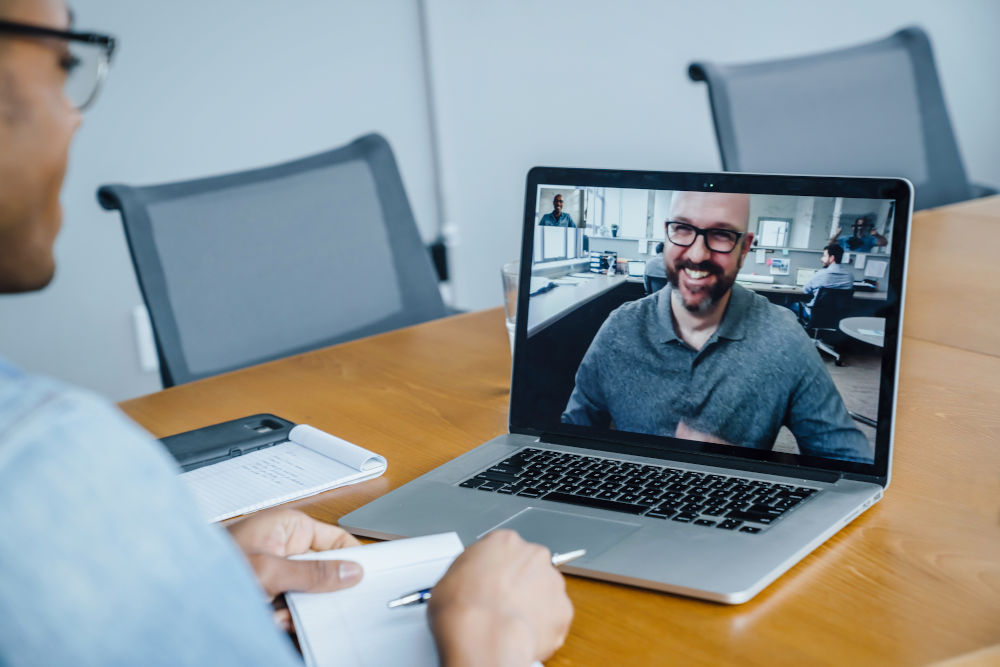Lockdown, episode II: opt for a distance certification audit

Autumn 2020: the reconfinement in force in France in the face of the second wave of covid-19 limits the possibility of opening one’s business to an auditor who has come to verify the correct application of a certification standard. But business goes on: get audited remotely!
ISO 9001 for quality management, ISO 14001 for the environment, ISO 45001 for health and safety in the workplace, Qualiopi standards for vocational training organizations, NF certifications, European ecolabels… Have you asked to be audited against one or more of the major certification standards, in order to gain recognition for your good practices? If you are confined to your office or have opted for teleworking, AFNOR Certification can audit you remotely! This includes, under certain conditions, sector-specific standards such as IATF 16949 for the automotive industry.
Indeed, in this autumn of 2020, the second wave of covid-19 restricts the ability to visit businesses. This applies not only to you, who work there, but also to our auditors, who normally have to go out into the field.
Our business continuity plan enables organizations and individuals to maintain their certifications and/or labels as far as possible,” says Julien Nizri, Managing Director of AFNOR Certification.
These measures take into account regular announcements by the French government and recommendations made by public authorities. They also incorporate the instructions of accreditation and approval bodies, and are subject to change as the situation evolves. “
Remote auditing: immersion and transparency
Whatever their specialty or preferred standards, the auditors appointed by AFNOR Certification have adapted their practices and protocols to ensure that a remote audit is as similar as possible to a field audit, with the same impartial, third-party auditor approach. AFNOR Compétences, for example, offers its “Auditer à distance” training course in a one-day virtual classroom.
Auditer à distance” training course in a one-day virtual classroom.
.
Auditor Chrystel Gary, for example, has carried out several audits entirely remotely for companies with the necessary tools. But as auditing is, by definition, a field job, a job involving human contact, she was not serene at the outset: ” Could the customer be hiding something? We could ask ourselves this question, because trust is the basis of our profession. It’s even trickier when you’re auditing a company for the first time. But in the end, customers played along, and the process remained transparent. So it can be done “says Chrystel Gary.
The listener adds: ” When you’re there, you observe a lot. But at a distance, we’re more involved in questioning and working in greater depth on the documents. It’s a different, very interesting approach that I really enjoyed. “Elisabeth Marchal, who carries out remote audits on ISO 9001, ISO 20000-1, ISO 270001 and healthcare data hosting, agrees with this viewpoint, but notes that the time spent working on documents and the constant connection with an interlocutor whose non-verbal communication you can’t understand requires breaks. ” Fortunately, the absence of travel more than makes up for it: no need to take a plane or stay in a hotel. And it’s not bad for the planet either ! “
Remote auditing: essential technical resources
Marie-Hélène Amétrano, a multi-referential auditor and assessor, has had her first taste of remote auditing… with connected glasses. Despite her lack of enthusiasm for new technologies, she conducted several ISO 9001 and ISO 14001 audits from home, videoconferencing with her customer, who was wearing the precious frames, and whom she was directing at her leisure. ” As I would have done in the field, I’d tell him to turn his head towards a particular building, to walk towards a particular person to ask questions, to pass a particular spot that I judged to be strategic on the basis of the floor plan I had in front of me. You go through someone else’s eyes and voice, but the posture and feeling are identical. I even came close to choking from a distance when my interlocutor broke through a cloud of dust to approach a concrete grinding station! “she says.
Like Chrystel Gary, Marie-Hélène Amétrano warns, however, that the exercise is less perilous when the auditor knows both the customer and the site. It’s less obvious for an initial audit,” confirms Elisabeth Marchal. But we can combine one day of face-to-face training with one day of distance learning. All the more so when, like me, you’re auditing IT customers who are surrounded by digital tools all day long. “Remote auditing is therefore particularly suitable for renewal audits, as well as for customers who have already been audited but wish to be certified to a new standard. Why not give it a try?